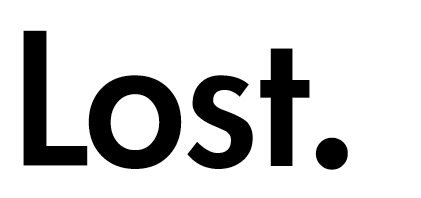In August of 2009, there was a segment on the Today show that told the brief story of a man who had found his life partner only to eventually discover that she was seeking to end his life. Fortunately, the “hit man” was an undercover police officer and the experience ended void of any tragedy.
While it’s difficult to generalize people’s responses to this story, I imagine most people place immediate blame on the wife and less on the husband. After all, he is the victim. But is this an appropriate response? Remember, he chose to be with this woman and is now faced with trying to understand why he didn’t see the signs that led to this nearly tragic outcome. At some level, he can be blamed for a situation that may have ended his life.
Let’s explore this concept further by looking at this from two opposite viewpoints:
Viewpoint #1: I am the master of my domain.
The first viewpoint is the belief that you are solely responsible for things that happen to you. If you take this viewpoint, everything that happens to you is ultimately because of something that you did. You can no longer claim to be a victim of circumstances, because the circumstance in question is something that you ultimately created.
For example:
If you get hit by a car, you are at fault for being in the path of the oncoming vehicle.
If you are in a career that isn’t going anywhere, you are at fault for making ‘wrong’ decisions that led you there.
If you are trapped in an earthquake, you are at fault for residing in that target location.
If you are in a relationship that isn’t working, you are at fault for participating and not leaving.
Again, if you employ this mindset, you are no longer the victim of circumstances. You cannot introduce “higher authority” figures into the equation (e.g. “God has a plan ..”) or make similar statements like “There is a reason why this happened …” because these statements are perhaps masking the truth of the event. Within this viewpoint, you are making decisions about what you do, who you interact with, where you live, etc. and those decisions ultimately result in events and things that impact your life – positively or negatively.
Viewpoint #2: I am a victim of circumstance.
Now let’s take a completely opposite perspective – one where your reliance upon a higher power guides your life path. “God has a plan” or “I will pray that things will be better” or “That’s life!” are statements that reflect this viewpoint. In some degree, you are taking responsibility (some if not all) off of your shoulders and accepting that things happen independent of your decisions or actions.
What’s interesting is that these viewpoints can be reversed depending upon the situation at hand.
For example, let’s say that you got a promotion at your job. Even if you employed this “higher authority” viewpoint for things that generally happen to you, in this particular case you probably equate your recent success with your own abilities and decisions. After all, you are the one who got promoted – and you wouldn’t have been promoted unless you were doing something right. In most circumstances, your first response is not “That’s life!” Instead, it’s one where you have taken charge of your destiny, and because of you, you have ultimately succeeded.
However, if someone close to you died unexpectedly, your first response would be – “Why did this happen?” or “Why did God let this happen?” Because the situation is beyond one’s control, you cannot rely upon yourself to make immediate sense of the situation. It’s only later in the grieving process where you may eventually shift your mindset and start to ask “What can I do to prevent this in the future?” (if applicable) or “What can I do to help others deal with an event such as this?”
In essence, your “life mindset” is altered depending upon what happens to you.
While I have taken the perspective of a given person, others’ responses to things that happen to you can sometimes take an opposite view to your own. For example, if you are in a bad relationship, others may empathize but will ultimately question why you got in the situation in the first place. If you were recently promoted, others may think of other reasons why you were promoted vs. focusing primarily on your core abilities. If someone who you knew died in an accident, others may quickly decide that “God has his reasons …” which may be the direct opposite of how you may feel – especially if you played some indirect role in that person’s death (i.e. giving them the car keys, etc.).
Independent of how you look at these “life perspectives”, I think that personality type and life experiences will determine which perspective makes the most sense to you. I think the lesson here is not to focus exclusively on one particular perspective, but be aware of the extremes and try to live life in the middle. Of course, this is not easy – especially for someone like myself who believes that my life is driven by my own choices and less on the need for a higher authority. But it is during times of sheer despair and confidence loss where this “centrist” perspective loses its value and you are forced to seek another viewpoint.
It’s a unique dichotomy that I don’t completely understand.




